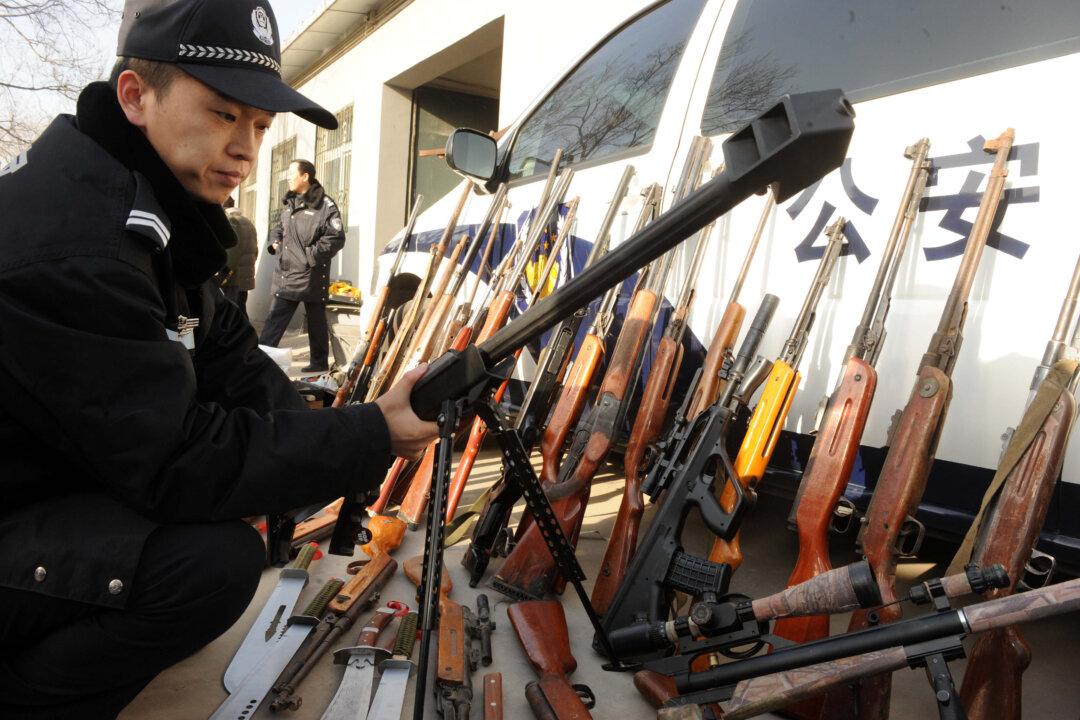The Chinese regime has announced it will begin a nationwide 100-day campaign to crack down on illegal weapons, as it tightens social control in the leadup to the 70th anniversary of the Communist Party’s rule in the country.
The campaign, which is to run from late April to the end of July, will target firearms and explosives, including underground markets and online selling channels.





